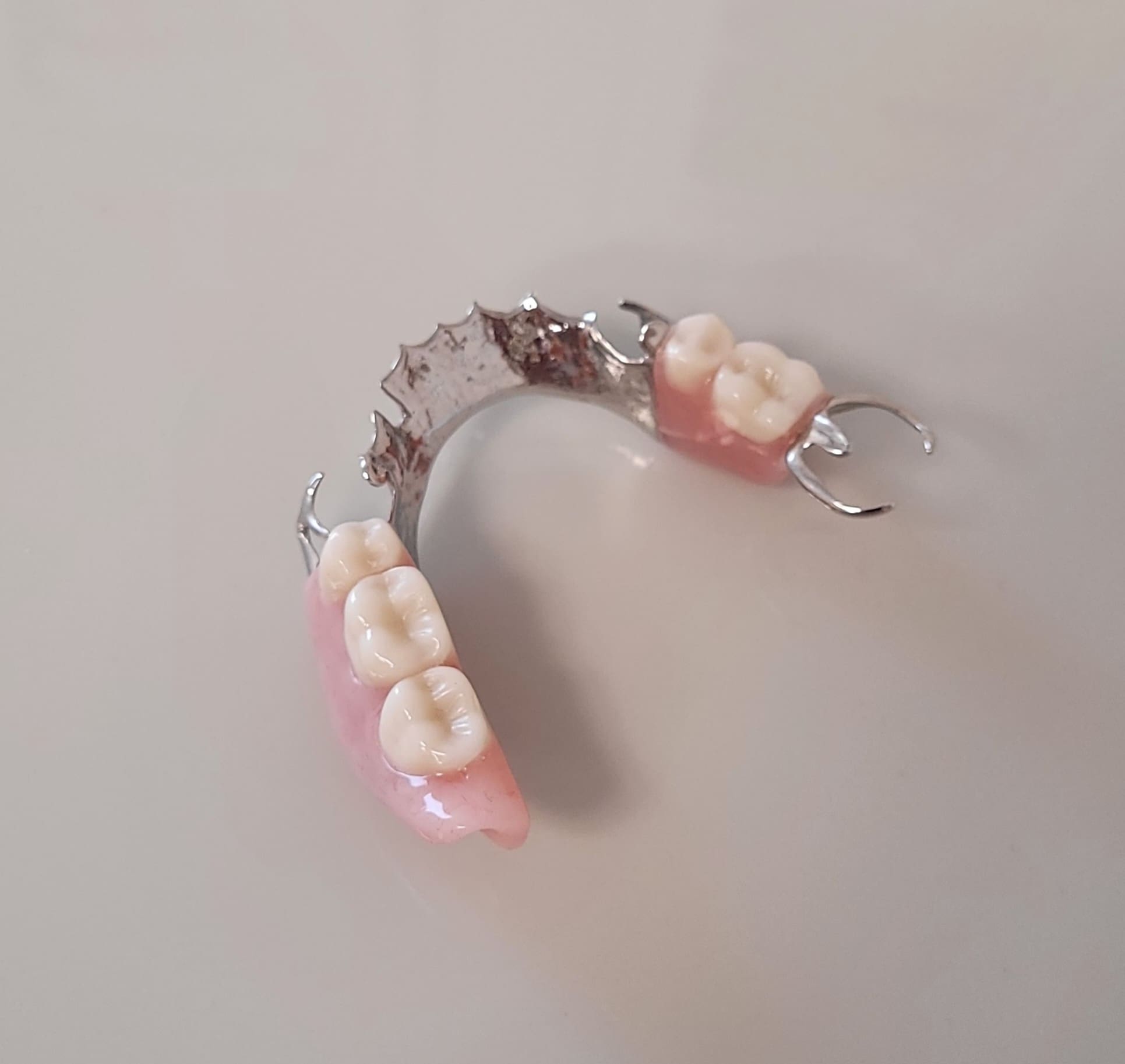Semi-precision dental prosthesis
Semi-precision dental prosthesis: Very popular dental prosthesis for its quality/price ratio. Usually made with good quality teeth, it is chosen for hardness, comfort and aesthetics.
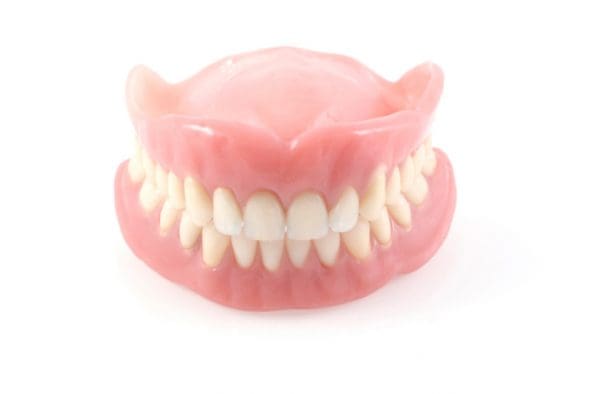
Precision dental prosthesis supported by implants
This type of prosthesis significantly increases stability and comfort.
The many advantages of a prosthesis supported on implants:
- No more having to use denture glue.
- Excellent placement in the mouth, providing better chewing and communication function.
- Provides almost the same sensations as natural teeth.
- Allows you to talk and laugh without any limits.
- Easy to remove for easy cleaning and good oral hygiene.
- Avoids any irritation and inflammation of the gums, which is a recurring problem for wearers of conventional prostheses.
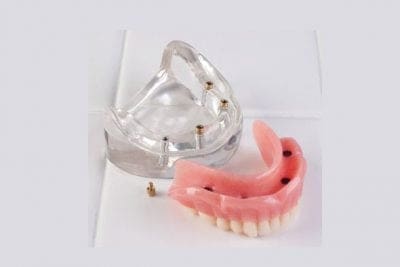
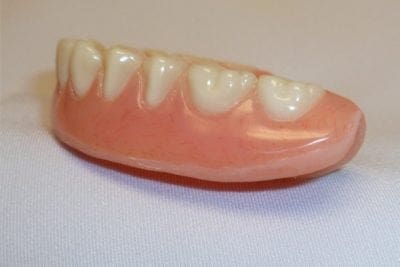
Soft base
Soft base: Cushion for lower denture which absorbs the shock of chewing and reduces gum sensitivity. It does not make the prosthesis more stable, but more comfortable. Its maintenance is more difficult.
Repair
Repair: It is very important not to try to repair a broken prosthesis yourself. You could make it irreparable. It is better to consult a denturist because he has the appropriate materials to repair it. It is better to consult a denturist because he has the appropriate materials to repair it.
In most cases the repair is done on site while you wait.
Four important things to know :
- A repaired prosthesis will remain more fragile;
- A porcelain tooth is more brittle than an acrylic tooth;
- Acrylic becomes more brittle over time;
- The repair of a partial or complete prosthesis is not guaranteed.
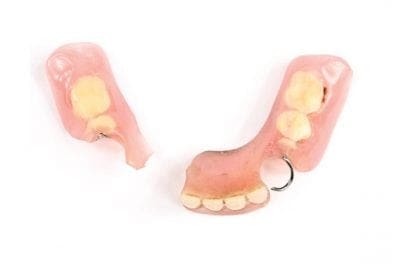
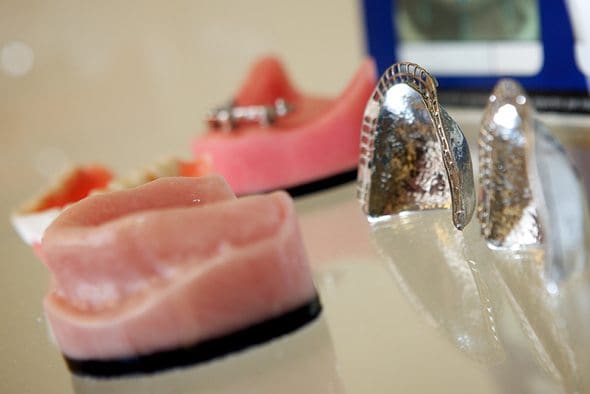
Other services
Metal Palate: The benefits of a prosthesis constructed with a metal palate include the reinforcement of complete upper dentures, a considerably thinner plate against the roof of the patient’s mouth and the restored sensation of hot and cold.
Denture rebasing:
It involves replacing the pink acrylic of the removable prosthesis and adapting it to the oral situation in order to improve contact with the gums, without changing the appearance or the arrangement of the teeth.
There are three types of relining: hard, flexible or temporary depending on the case.
Denture relining:
Its objective is to adapt the prosthesis to the gum again.
Aging, weight loss or oral surgery are factors that can contribute to the decrease in bone density.
This technique will not change the appearance of your prostheses, because only the inside of them will be modified.

